Uncategorized
-
 Health & Medicine
Health & MedicineYoung adults can face severe cases of COVID-19, too
While risk of having a severe case of COVID-19 rises with age, younger adults are also landing in the hospital and ICU, new U.S. statistics show.
-
 Health & Medicine
Health & MedicineHIV drugs didn’t work as a coronavirus treatment in a clinical trial
Antiviral HIV drugs “showed no benefit” when given to patients severely ill with COVID-19.
-
 Health & Medicine
Health & MedicineHow parents and kids can stay safe and sane during the coronavirus pandemic
Infectious disease experts weigh in on playdates, playgrounds and other parenting questions.
By Laura Sanders and Sujata Gupta -
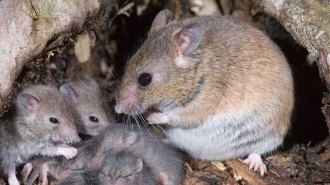 Health & Medicine
Health & Medicine50 years ago, scientists were trying to get a grip on Lassa fever
In 1970, scientists were on the trail of a deadly new virus. Fifty years later, a vaccine is just now being tested in people.
-
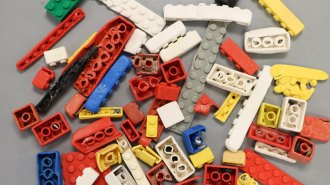 Environment
EnvironmentLegos may take hundreds of years to break down in the ocean
Sturdy types of plastic may persist in seawater for much long than scientists previously thought.
-
 Physics
PhysicsNew telescopes could help spot ‘photon ring’ of the first black hole ever imaged
Expanding the Event Horizon Telescope by adding telescopes in space could help capture the rings around galaxy M87’s supermassive black hole.
-
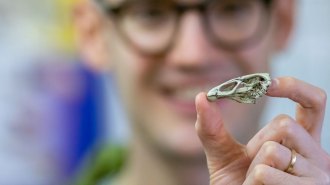 Paleontology
Paleontology‘Wonderchicken’ is the earliest known modern bird at nearly 67 million years old
A new fossil find, dubbed the Wonderchicken, is a common ancestor of modern ducks and chickens.
-
 Health & Medicine
Health & MedicinePeople who didn’t know they had COVID-19 drove its spread in China
A new study suggests that mild cases, in which people have no symptoms or don’t get sick enough to go to a doctor, are fueling the coronavirus pandemic.
-
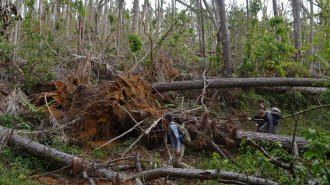 Climate
ClimateHow Hurricane Maria’s heavy rains devastated Puerto Rico’s forests
Hurricane Maria wreaked havoc on Puerto Rican forests in some unexpected ways.
-
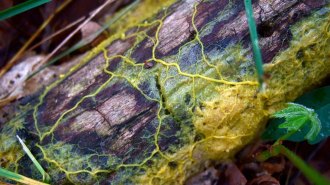 Physics
PhysicsHow slime mold helped scientists map out the cosmic web
Tapping a similarity between a slime mold’s lacy web and the vast threads of matter that connect galaxies, astronomers visualized the cosmic web.
-
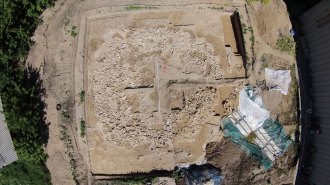 Archaeology
ArchaeologyThis is one of the largest Ice Age structures made of mammoth bones
A massive ring of mammoth bones, built by hunter-gatherers during the Ice Age, offers a peek at life 25,000 years ago.
By Bruce Bower -
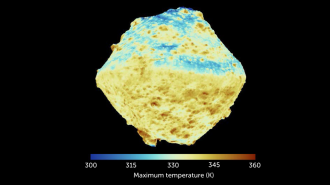 Planetary Science
Planetary ScienceThe asteroid Ryugu has a texture like freeze-dried coffee
Only about half of the asteroid Ryugu is rock; the rest is airy holes, a finding that could help reveal details of how the planets formed.